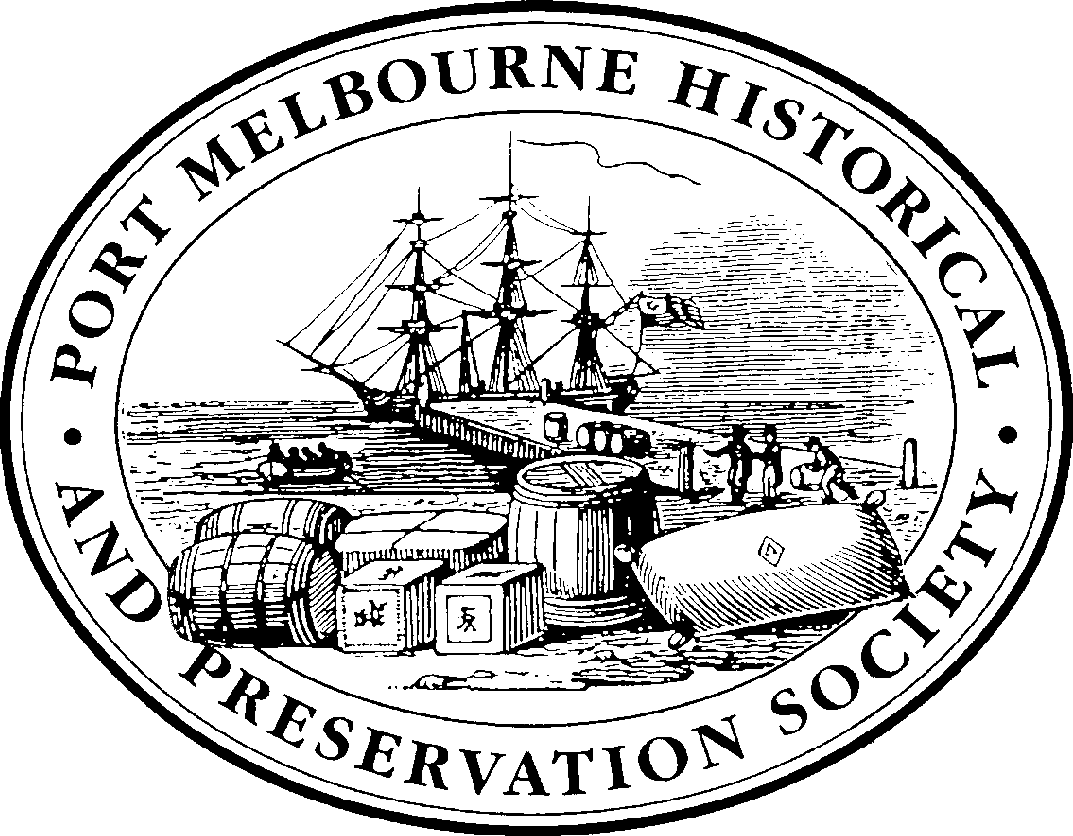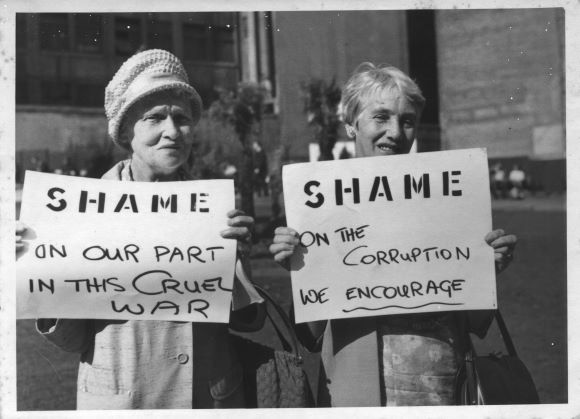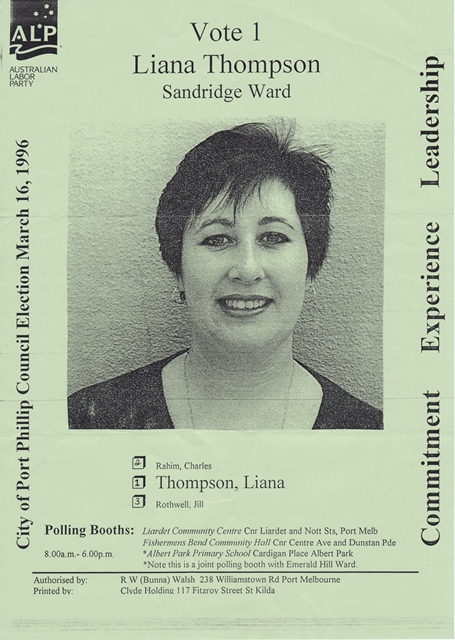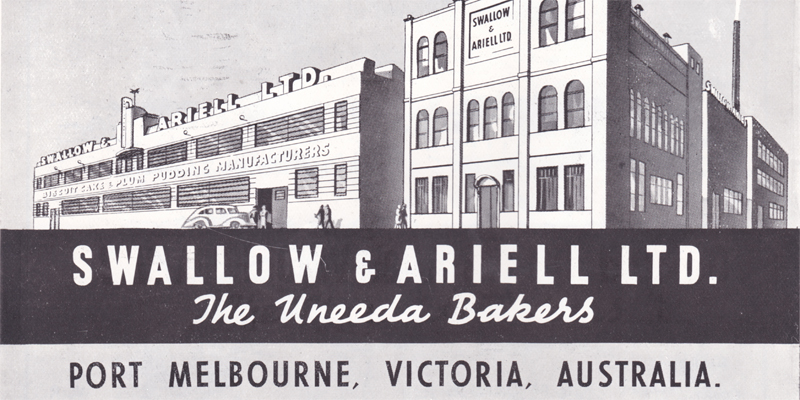Francis Thomas Warren: Port Melbourne Property Investor
by Ray Jelley
Francis was the fifth of six children born to William Henry Warren and his wife Mary Bowden in Exeter, Devon. When Francis turned eighteen in 1859, he joined the Royal Marines (RM) in Plymouth and served for twenty-two years, completing his service in 1881. His death certificate indicated that he was a ‘Pensioner of the Royal Marines’.1
Immediately after he finished serving with the RM he left England to migrate to Australia on board the Cotopaxi, which arrived in Melbourne in March 1881. His older brother John Frederick, born in 1834, was already in Victoria and living in Bendigo where he ran a successful timber business after firstly trying his hand at gold mining. According to the Bendigo Advertiser, which published an obituary of John, he had arrived in Victoria in 1856 after becoming a carpenter in London when he was eighteen.2 Francis was also featured in a Bendigo Advertiser obituary which stated that for ‘a year or so he stayed with his brother in Bendigo, and subsequently resided in Melbourne’.3 I imagine Francis worked in his brother’s timber business before deciding to relocate to Melbourne, choosing the ‘Borough’ as his home for the rest of his life.
Francis set up business as a pawnbroker in what was then 44 Beach Street, Port Melbourne between 1882 and 1883. He took over the business from the Cook family who had occupied the shop from about 1876. This could have been late in 1882 as William Charles Cook died on 18 November 1882. Why he chose to be a pawnbroker may be associated with his not having a trade such as his brother, or any other which would enable him to feed and clothe himself as well as any family that might come along. He was in his early forties and probably not used to the type of life that would attract him to becoming a labourer. In addition, he may have had some savings from his days as a Royal Marine as well as any money that his parents had left him to share with his siblings, along with his wages from working with his brother. Alternatively, or additionally, his brother, who was a successful businessman, may have assisted him with financial support to get him started.
After taking over the pawnshop from Henry George Cook, the son of William Charles Cook, Francis remained in the same premises until he died in 1904. The family home was then 234 Rouse Street. Francis commenced buying properties in Port Melbourne on his arrival in 1882. The first was his shop at 44 Beach Street, and he made no further purchases until between 1886 and 1890 when he bought two properties, one which became 284 Esplanade East and the other 49 Spring Street. From 1891 to 1895 he bought another twenty-six properties which were scattered across Port Melbourne from Albert Street to Esplanade East, Nott, Little Bay, Princes, and Cruikshank Streets. However, the years when he made the most purchases were from 1896 to 1900, where he made a total of 106. Once again, the properties were scattered across Port Melbourne from Albert to Dow, Bridge, Cruikshank, Graham, Heath, Liardet, Little Ingles, Nelson, Nott, McCormack, and Esplanade East. During this period, he acquired the Commercial Hotel as well. Most purchases occurred after 1897, which numbered eighty-one. Between 1901 and 1904 he didn’t acquire any. The Valuation Book description of his occupation at the time as ‘Financier’ was very appropriate. At the time of his death the total value of his property in Port Melbourne was £22,017 for probate.
Francis’ property purchases from 1896 to 1900 show that he was able to take advantage of the economic crash of the late 1890s to establish an extensive property portfolio, especially in Port Melbourne. He was mindful enough to not become involved in the rampant speculations that many others became involved in during the land boom of the 1880s which left them exposed to substantial debts. When the banks refused to extend credit, they became bankrupt, and in numerous cases were accused of fraudulent dealings. Indeed, the crash and the washup identified how many ‘pillars’ of Victorian society had been tempted by greed to immerse themselves in a frenzy of nefarious property deals. Michael Cannon stated of the crash that ‘it was one of those rare social crises in which the guilt of a select group of individuals could be clearly defined’.4 His celebrated book on this time in Victoria’s history, The Land Boomers, listed the names of no fewer than 137 Victorians who made secret compositions5 in order to address their debts from property speculation, eighty-five in 1892 and fifty-two in 1893.6 Many others were also caught up, but their names appeared in the newspapers of the day which reported on the social tragedy that had been caused by the ‘rush to riches’. One who made a secret composition was Frederick Thomas Derham, councillor, mayor of Port Melbourne 1882-1883, son-in-law of Thomas Swallow and a prominent member of the Port Melbourne community, who made a secret arrangement with his creditors to pay a penny in the pound of his £450,727 deficiency.7
Francis was unable to enjoy the benefits of his wise investments in his senior years however as he died in 1904 aged sixty-three of an aneurism. He had married Jeanette Parker in 1890 and left two daughters, Lillias Mary aged thirteen and Frances Jeanette aged eleven along with Jeanette aged forty-eight when he died. Francis was another of those benevolent citizens of Port Melbourne who remained largely out of the limelight despite his generous donations to Port Melbourne sporting clubs, his presidency of the Chess and Draughts Club, vice presidency of the Railway United Football Club, and travelling to the United Kingdom with a team of Australian Bowlers in 1901.
In his obituary, published in the Standard, he was described as ‘… not a public man in the ordinary sense of the word, the deceased gentleman was nearly always to be found taking part with any movement that was good for the town’.8 A fitting salutation for him.
Francis’ remains were conveyed to Bendigo where he was buried, and where Jeanette joined him after her death in December 1928.
Francis Thomas Warren (1841 – 1904)
1 Francis Thomas Warren, death certificate, Victoria Registry of Births, Deaths and Marriages.
2 ‘Death of Mr. J. F. Warren,’ Bendigo Advertiser, October 22, 1912, p. 22.
3 ‘Obituary,’ Bendigo Advertiser, December 24, 1904, p. 5.
4 Michael Cannon, The Land Boomers (Melbourne: Melbourne University Press, 2013), p. vii.
5 Ibid., p. 50; Note: Victorian legislation at the time allowed debtors to make secret arrangements with their creditors, meaning that many were able to access credit from other sources who were unaware of their inability to meet their monetary obligations.
6 Ibid., pp. 391-394.
7 Ibid., p. 391.
8 ‘Obituary,’ Standard, December 24, 1904, p. 2.



